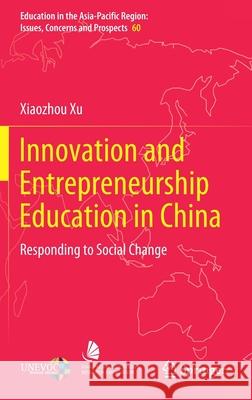Innovation and Entrepreneurship Education in China: Responding to Social Change » książka
topmenu
Innovation and Entrepreneurship Education in China: Responding to Social Change
ISBN-13: 9789811637230 / Angielski / Twarda / 2021 / 389 str.
Kategorie:
Kategorie BISAC:
Wydawca:
Springer
Seria wydawnicza:
Język:
Angielski
ISBN-13:
9789811637230
Rok wydania:
2021
Wydanie:
2021
Numer serii:
000380463
Ilość stron:
389
Waga:
0.75 kg
Wymiary:
23.39 x 15.6 x 2.39
Oprawa:
Twarda
Wolumenów:
01
Dodatkowe informacje:
Wydanie ilustrowane











